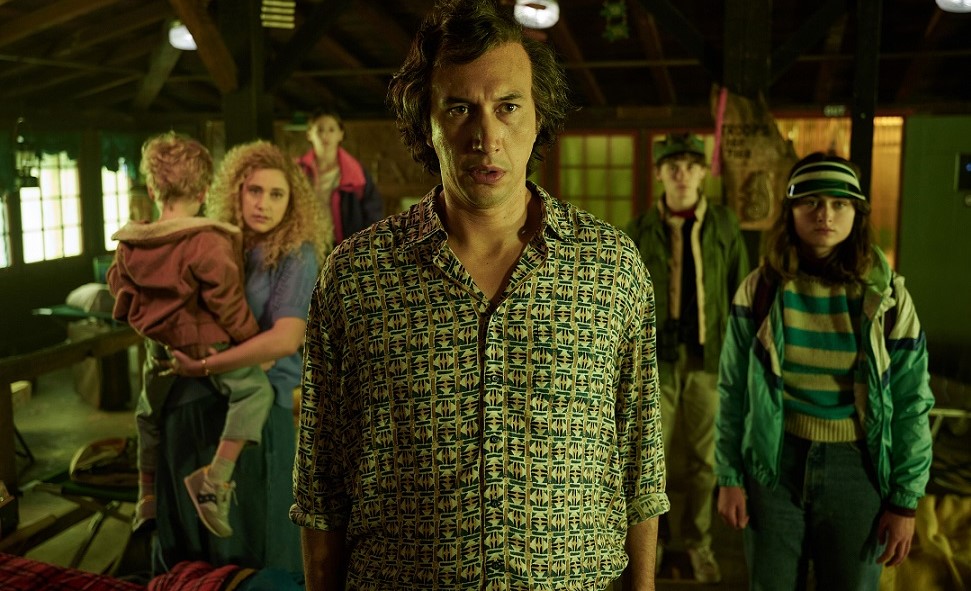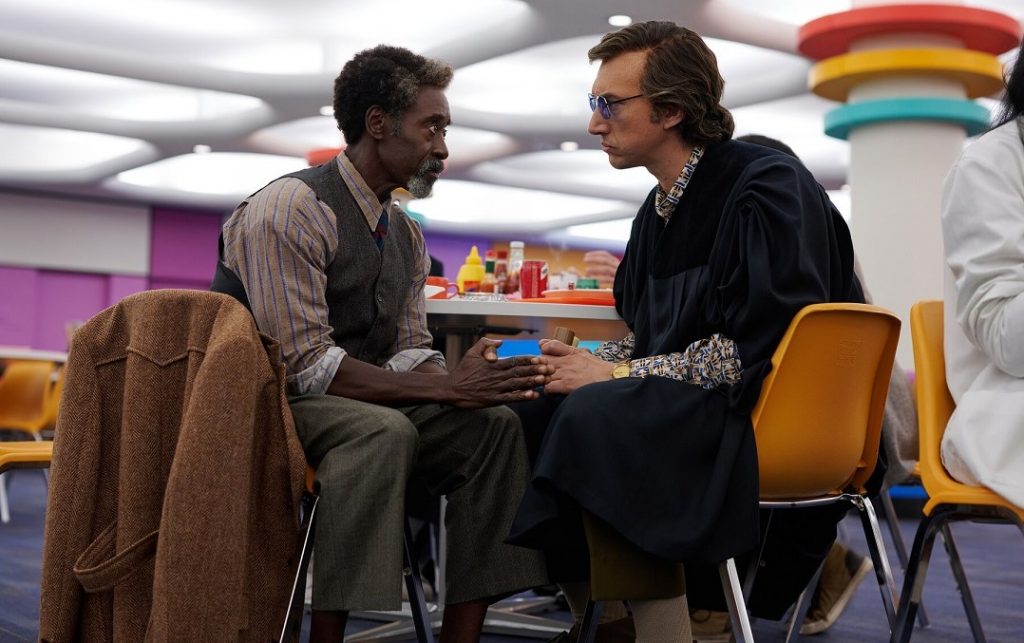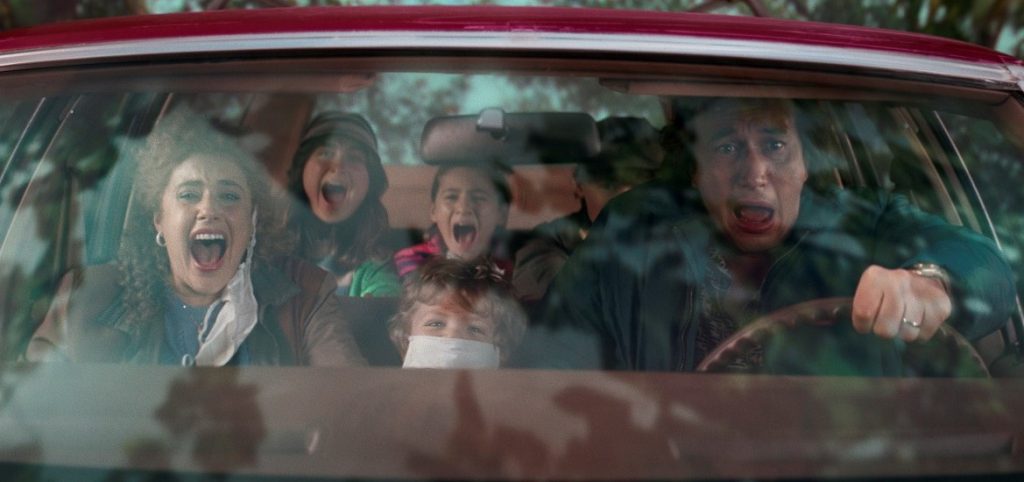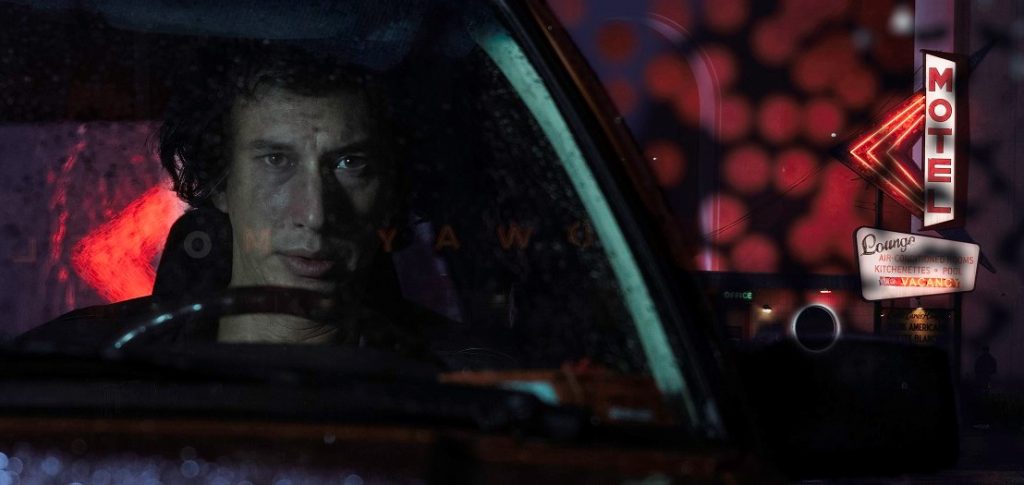This feature will be available to stream on Netflix beginning December 30th.

As the year is coming to end, it certainly seems as if there have been a lot of grandiose (and lengthy) features striving to combine many elements and ideas into a cohesive whole. Based on a well-regarded book by Don DeLillo, White Noise attempts to combine comedy with personal drama, as well as elements from disaster pictures. Heck, it even throws in a dance number for good measure. It’s all a bit messy and the results are ultimately uneven, but at least there are individual sections that do work and a few fun moments to behold.

The film starts in 1984 and focuses on a charismatic but death-obsessed college professor named Jack Gladney (Adam Driver). He spends his days teaching “Hitler” studies, as well as hearing colleagues like Murray Siskind (Don Cheadle) talk about subjects like popular culture, he returns home to a very eccentric family. Despite a pleasant home life, he still harbors fears, especially when wife Babette (Greta Gerwig) exhibits some strange behavior that concerns other members of their blended family. After a nearby accident results in an airborne toxic event that causes panic in the streets, Jack is forced to confront his own issues with dying and attempts to find some form of psychological relief for his condition.

As mentioned, the movie generally emphasizes humor when dealing with the lead’s fear of death, but it does lead to various scenarios that are quite different in tone. The shifting plot elements could have resulted in a total mess, but the cast are all excellent and there are certainly some funny moments. Early on, a couple of lectures given by Siskind on popular culture will raise a smile from anyone who has taken a film or media studies course. Some of his theories on violence and its effects on the psyche are both intriguing and rib-tickling.

And when literal disaster strikes the town and the family are forced to evacuate, the movie effectively pokes fun at tropes common in disaster pictures. Some of these really enjoyable bits include the family stuck on a highway and peering into other cars to figure out the proper reaction to their surreal situation. When events turn chaotic, there’s a humorous bit involving Jack reentering a fracas to retrieve a young family member’s stuffed animal. And the best scene involves the leads taking their car on an ill-advised back route to avoid the masses of reckless drivers.
But for all of the successful bits, there are several that don’t hit the mark. The last third of the movie deals with marital strife and a very extreme act that Jack takes in order to both deal with a problem and make himself feel more alive in the process. Besides a joke involving a light source, the humor doesn’t work as effectively in this part of the film as the tone becomes more dramatic. And the movie’s summation on how and where to find hope results in an unexpected musical sequence – while the setting is visually impressive and the choreography is elaborate, in the end it doesn’t overwhelm or leave a big impression.

Overall, White Noise is a bit of a mixed bag, both in terms of its content and the effectiveness of the end result. We are seeing a man going through an existential crisis on how to deal with his own inevitable demise and some of the story’s humorous observations are sharp. When the movie satirizes the disaster genre, many of the gags earn chuckles. Unfortunately, it is also overstuffed and suffers from a slower-pace during its final third and a finale that doesn’t overwhelm. In the end, this is an ambitious effort with enough goodwill to earn it a modest recommendation… viewers just shouldn’t be expecting a major awards contender.


